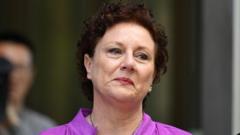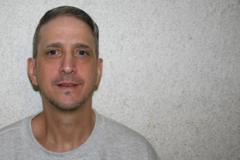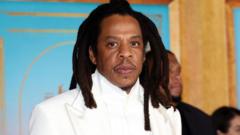HOUSTON (AP) — The Texas Court of Criminal Appeals has paused the execution of Robert Roberson, who was set to be the first person in the nation executed for a murder linked to shaken baby syndrome. This move marks the third time that Roberson's execution date has been postponed since 2016, and comes in the wake of bipartisan concerns regarding his potential innocence.
Roberson had been scheduled for lethal injection on October 16 following the tragic death of his 2-year-old daughter, Nikki Curtis. His legal team has pursued numerous appeals to halt his execution, making arguments for a new trial based on misconceptions surrounding his autism diagnosis and evolving views on forensic science.
After reviewing Roberson's case, the court decided to send it back to the trial court for further examination, focusing on implications from similar precedents, particularly a ruling from October 2024 involving another case tied to shaken baby syndrome.
Despite the legal developments, the family of Nikki Curtis expressed disappointment, asserting that the evidence substantiates Roberson as the perpetrator of her injuries. Contrarily, Roberson and his advocates firmly maintain his innocence, claiming crucial evidence has been disregarded.
As the case unfolds against a backdrop of contentious scientific debate over shaken baby syndrome, discussions continue about the application of the 2013 Texas 'junk science law,' which allows convicts to seek justice based on the evolution of scientific understanding.
Roberson had been scheduled for lethal injection on October 16 following the tragic death of his 2-year-old daughter, Nikki Curtis. His legal team has pursued numerous appeals to halt his execution, making arguments for a new trial based on misconceptions surrounding his autism diagnosis and evolving views on forensic science.
After reviewing Roberson's case, the court decided to send it back to the trial court for further examination, focusing on implications from similar precedents, particularly a ruling from October 2024 involving another case tied to shaken baby syndrome.
Despite the legal developments, the family of Nikki Curtis expressed disappointment, asserting that the evidence substantiates Roberson as the perpetrator of her injuries. Contrarily, Roberson and his advocates firmly maintain his innocence, claiming crucial evidence has been disregarded.
As the case unfolds against a backdrop of contentious scientific debate over shaken baby syndrome, discussions continue about the application of the 2013 Texas 'junk science law,' which allows convicts to seek justice based on the evolution of scientific understanding.

















